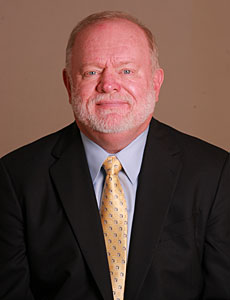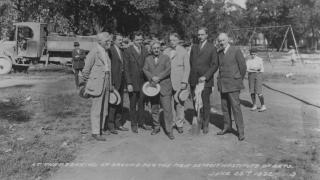
Edward A. Silver, dean of the School of Education, has been appointed to the National Research Council's (NRC) committee on Defining Deeper Learning and 21st Century Skills.
The current context of education in states like Michigan is a focus on college and career readiness with the 21st century skills prominently featured in the rationale for higher expectations in K-12 education. The Defining Deeper Learning and 21st Century Skills committee is charged with clarifying the public discussion around these skills by helping policymakers and educational researchers define these terms and lessen their subjectivity and ambiguity.
The five key questions for the Committee are: (a) Define a set of key skills that reflects the constructs referenced by such labels as "deeper learning," "21st century skills," "college and career readiness," "student centered learning," "next generation learning," "new basic skills," and "higher order thinking." (b) Describe how these skills relate to each other and how students can master them in the context of core academic disciplines such as English language arts, mathematics, and science. (c) Summarize the findings of the research that investigates the importance of such skills to success in education, work, and other areas of adult responsibility and that demonstrates the importance of developing these skills in K-16 education (d) Summarize what is known - and what research is needed - about how these skills can be learned, taught, and assessed; and (e) Identify features of educational interventions that research suggests could be used as indicators that an intervention is likely to develop the key skills in a substantial and meaningful way.
The Committee will generate a consensus report based on their findings, which will be publicly released in fall 2011, with final publication in late 2011. To generate the report, the Committee will participate in a public discussion with the sponsors about the project goals and the evidence available that can provide the basis for the report's conclusions and recommendations. This initial discussion will allow the sponsors and committee to exchange ideas about the issues to be addressed. The committee and NRC staff will prepare for the first meeting by drafting an initial outline of existing research that the committee can use to develop its report.
The work of the committee will be overseen by the Board on Testing and Assessment (BOTA) and the Board on Science Education (BOSE), which are the two NRC boards that have overseen the prior NRC work related to 21st century skills. Silver's term with the committee, effective immediately, will run through Sept. 3, 2012 with a focus on deeper learning in mathematics.
In addition to serving as dean of the School of Education, Silver is William A. Brownell collegiate professor in education at U-M Ann Arbor. His research interests focus on the teaching, learning and assessment of mathematics, particularly mathematical problem solving. He is also actively involved in efforts to promote high-quality mathematics education for all students, particularly Hispanic and African-American students.
Silver's service with the NRC includes the Mathematical Sciences Education Board, the study group on Guidelines for Mathematics Assessment, the committee on the Foundations of Assessment, and the committee on the Study of Teacher Preparation Programs in the United States.
Also of note, Silver has been selected for the Senior Scholar award from the American Educational Research Association Special Interest Group for Research in Mathematics Education. The award is presented in recognition of the research of a single scholar within the field whose programmatic work has been essential in mathematics education.
The National Research Council (NRC) functions under the auspices of the National Academy of Sciences (NAS), the National Academy of Engineering (NAE), and the Institute of Medicine (IOM). The NAS, NAE, IOM, and NRC are part of a private, nonprofit institution that provides science, technology and health policy advice under a congressional charter signed by President Abraham Lincoln that was originally granted to the NAS in 1863. Under this charter, the NRC was established in 1916, the NAE in 1964, and the IOM in 1970. The four organizations are collectively referred to as the National Academies.
The mission of the NRC is to improve government decision making and public policy, increase public education and understanding, and promote the acquisition and dissemination of knowledge in matters involving science, engineering, technology, and health. The institution takes this charge seriously and works to inform policies and actions that have the power to improve the lives of people in the U.S. and around the world.
####






